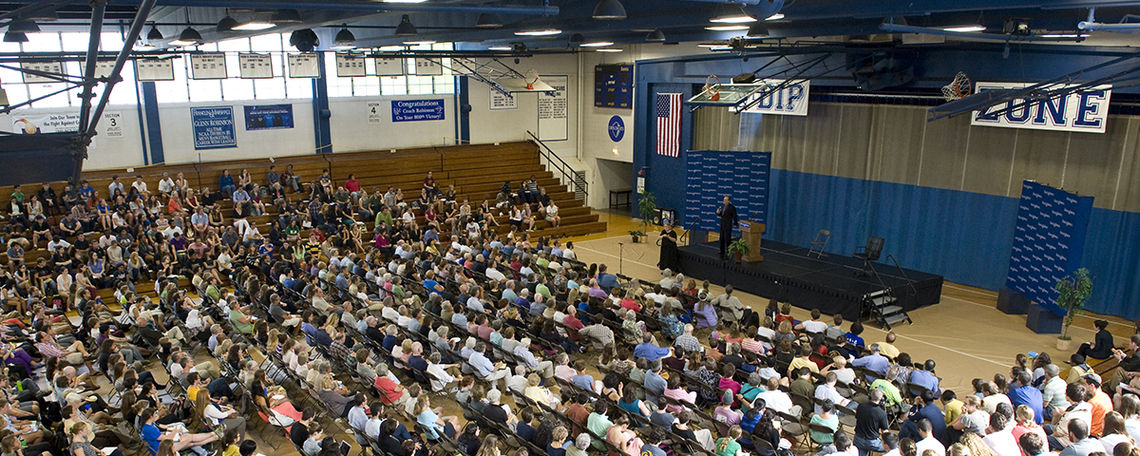By John Ehleiter || Contributing Writer
To the Common Hour Committee:
When I first read your recent e-mail concerning proper Common Hour etiquette, I was overcome by powerful indignation, and set out to thoroughly critique your argument and its basic premise.
I intended to point out, for example, that but the briefest research on the question of public performance etiquette paints a complex picture that cannot be boiled down into simple commandments. For example, The New York Times, Town and Country and the Emily Post Institute offer contrasting views that embrace ambiguity and are at times mute on the question.
Moreover, it seemed to me that your premise, that student behavior at Common Hour embarrasses the College, flies in the face of the intellectual culture of which your event purports to be a vital part. We claim to be an institution that fosters dissent, and welcomes and encourages difference. Students who found Mr. Abdul-Jabbar’s performance lackluster are not wrong, any more than are students who found Mr. Charles’ subsequent talk more engaging, or students who choose to ignore Common Hour altogether. We each contribute a valuable perspective to the intellectual community, or so we are told.
What’s more, I thought, by denying the right to leave early, you are cutting off a basic mode of student expression. How can students voice their displeasure with Common Hour? Not going isn’t getting the point across. If students are unsatisfied with the product they are consuming, should they be barred from leaving? Are students also forbidden from dropping classes, changing majors, leaving clubs and organizations, or quitting sports teams?
I even imagined that many of you have listened to academic and professional speakers who have overstayed their welcome. You must, I thought, have seen speakers run over, or fail to keep your interest. You must have experienced truly excruciating Q&As, where audience members use their microphone time to share with others the joy of hearing the sound of their own voice. Surely you have walked out on talks before.
I even took umbrage at your personal attack on our students. True, not every student is an unquestioning yea-saying devotee of College policy, religiously attending every Common Hour while still making time for the myriad enriching and resume-building activities that broaden the college experience. But I have the privilege of interacting with many of our students, and they are far from lacking etiquette, respect, or intellectual curiosity. And, they know that they aren’t in high school anymore, even if you do not.
But, instead of writing that editorial, I spoke with students, faculty and professional staff, and alums. These conversations left me with more questions than answers. I put these questions to you.
Why is the Diplomat Strength Center closed during Common Hour? To “encourage” student participation? Why stop there? Why not close the ASFC? And the libraries? In fact, since the pizza at Common Hour is not meant to bribe students into attending, but is rather a gesture of goodwill to anyone who might miss lunch, why not close more campus eateries? Why not really “encourage” people?
Also, if your attitude toward those who leave early is truly that they should not attend at all, do you accept the consequences of that on attendance? Just how many students have been attending Common Hour? And don’t answer me with the general admission number. How many of the people attending your event are actually students? And what percentage of the student body is that? Isn’t engaging the students one of the key purposes of Common Hour? How successful has that been?
Speaking of the purpose of Common Hour, how well is it meeting the goal to alleviate the congestion of conflicting evening lectures? Has the number of such lectures been quantifiably reduced? I still get so many e-mails about them; it has been hard to keep count.
I appreciated your e-mail. It encouraged me to step back from my fervent distrust of a top-down, nearly-mandated event, and stop questioning whether it generates enough student interest and attendance to be worth the cost. I hope the questions I’ve raised here can launch a much more productive conversation instead.
John Ehleiter is a contributing writer and a member of the Franklin & Marshall Professional Staff. His email is jehleite@fandm.edu.
